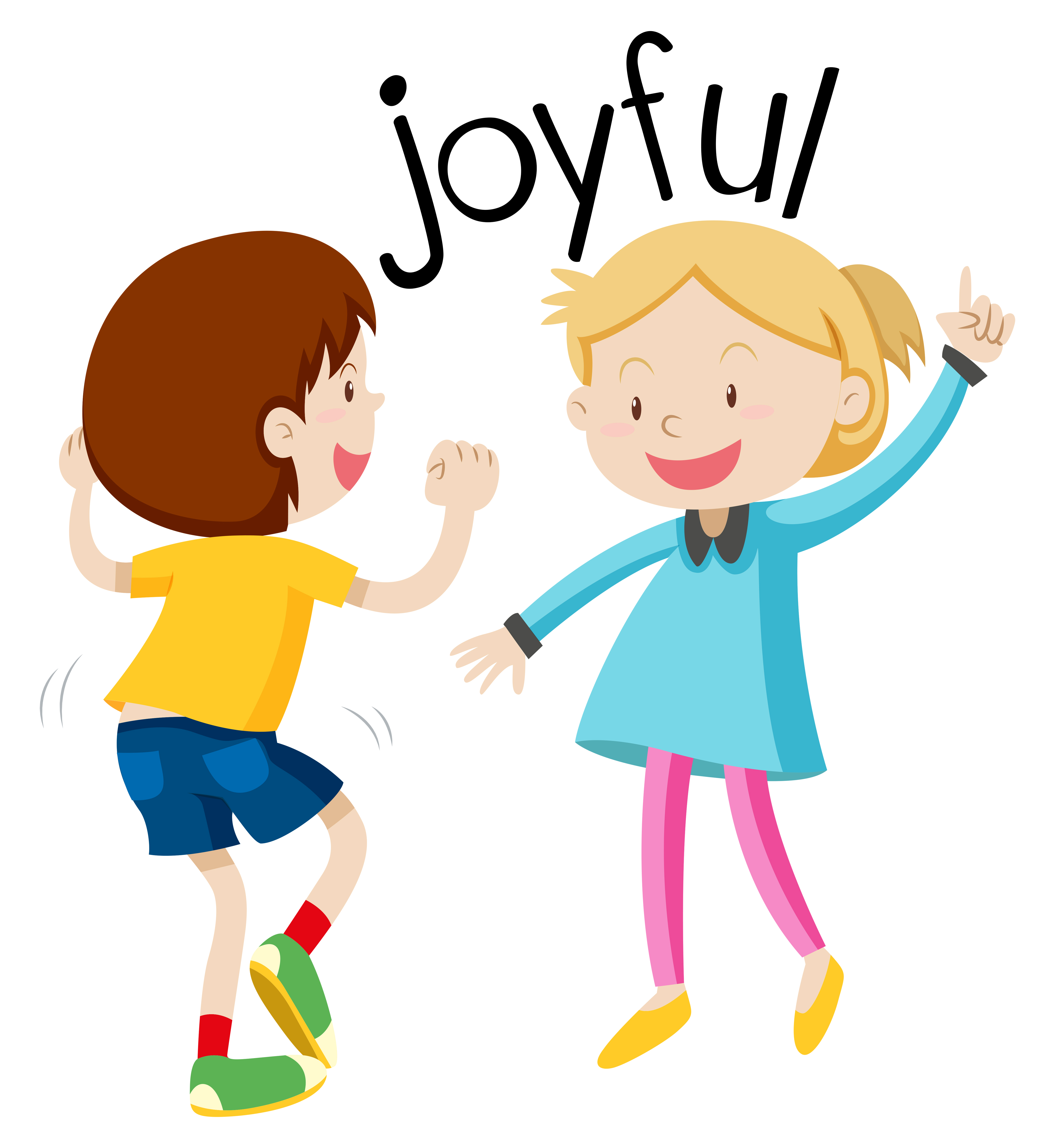Table Of Contents
There's something truly special about a good laugh, isn't there? It’s that feeling of pure happiness, a burst of good cheer that seems to make everything a little brighter. When we talk about "joyous laughter," we are, in a way, pointing to moments that fill us with deep contentment and a sense of lightheartedness. It's the kind of sound that just makes you feel good, whether you are the one making it or simply hearing it echo around you. This sort of happiness, you know, it just bubbles up from within, often without much thought, and spreads like sunshine.
This idea of laughter and its power often pops up in unexpected places, even in something like the New York Times crossword puzzle. For many who enjoy a good mental workout, seeing "joyous laughter nyt" as a clue brings a smile, a little challenge that connects to something bigger than just letters on a grid. It's a phrase that asks you to think about what true happiness sounds like and how it might be described in just a few short letters. It really is a neat way to bring a little bit of everyday human experience into a puzzle.
So, we're going to take a closer look at what "joyous laughter" really means, especially when it shows up in places like the New York Times. We'll explore how this idea connects with our daily lives, how it makes us feel, and why it holds such a special place in our culture. It's about more than just a sound; it's about what that sound represents for us all, and you will see that it really is a powerful thing.
- What is Joyous Laughter, Really?
- How Does Joyous Laughter Show Up?
- Joyous Laughter in the NYT Crossword - A Puzzling Delight
- Why Does Joyous Laughter Matter So Much?
- Joyous Laughter and Our Connections
- Can Joyous Laughter Help Us Feel Better?
- Joyous Laughter in Culture and Media
- The Ever-Present Quest for Joyous Laughter
What is Joyous Laughter, Really?
When we talk about "joyous," we're really just talking about something that makes you feel full of joy, something that makes your spirit lift. It's about having a happy mood or a cheerful nature. Think about how you might describe a day that just felt good from start to finish; that’s the sort of feeling we're getting at. It's a word that points to a state of being truly pleased and content. You know, it's more than just being okay; it's being genuinely happy, and that’s a pretty good thing to be.
The True Feeling Behind Joyous Laughter NYT
So, when you put "joyous" together with "laughter," you get something quite special. It’s not just any old giggle or chuckle; it’s the kind of sound that comes from a place of true delight. Imagine a group of people at a party, sharing stories and just letting loose, their shouts and sounds of amusement filling the air. That’s what we mean. It’s a sound that says, "I'm having a wonderful time," and it comes from a deep sense of happiness. It's a feeling that, honestly, just lights up a room, or really, any space it happens to be in.
This sort of laughter is often something that just happens, without you needing to think about it. You hear a piece of music, for instance, and your heart just feels lighter, and a smile spreads across your face, perhaps even a chuckle escapes you. It's a direct feeling, not something you have to reason through. It’s like when someone has made your younger years so full of happiness and freedom from worry; that feeling of pure, unburdened happiness is what joyous laughter carries with it. It’s a pretty strong word, really, for those moments that are absolutely the best, and it certainly feels good.
How Does Joyous Laughter Show Up?
Laughter, especially the joyous kind, shows up in many ways, both with words and without. Sometimes, it’s the sound itself, loud and clear, that tells you someone is truly happy. Other times, it's in the way a person's face lights up, their eyes crinkling at the corners, even if the sound is quiet. It's a full-body expression of feeling good, a kind of release that just makes you feel lighter. You can often tell it's the real deal because it feels so natural and unforced, a genuine expression of a good mood. It really does make a difference in how we connect with others.
Joyous Laughter NYT - More Than Just a Sound
When the phrase "joyous laughter nyt" comes up, it’s pointing to something that goes beyond just a noise. It’s about the feeling that comes with it, the way it connects people and helps them feel at ease. Think about how a shared moment of amusement can just melt away any tension in a room. It's a way of communicating happiness without needing to say a word. This kind of laughter is, in a way, a little burst of sunshine that makes people feel closer and more comfortable with each other. It really is a powerful tool for bringing people together, and it just happens naturally.
It's interesting to consider how this kind of laughter is described. People might say it's thankful, pleased, or just really happy. On the flip side, things that aren't joyous might be described as sad or unhappy. This contrast helps us see just how much good feeling is packed into that phrase. It's about that feeling of pure delight, the kind that makes you want to shout with glee. So, when you hear about "joyous laughter," you know it's pointing to something truly good and full of positive feeling, and that's just a good thing to think about.
Joyous Laughter in the NYT Crossword - A Puzzling Delight
For those who love to solve puzzles, finding "joyous laughter nyt" in the New York Times crossword is a moment of both challenge and pleasure. It's a clue that asks you to dig into your memory for words that fit the description of cheerful sounds. Often, the answer turns out to be "Mirth," a word that has been used for a long time in stories and poems to describe scenes full of fun and good spirits. It brings with it a feeling of warmth and a light heart, making it a perfect match for the idea of truly happy sounds. It's a little game, really, that connects us to language in a playful way.
Solving the Mystery of Joyous Laughter NYT
When you come across this clue in a puzzle, like the NYT Mini, it does more than just test your vocabulary. It taps into a feeling that most of us know well: the simple pleasure of a good laugh. It's about finding the right word that captures that feeling, whether it's "Mirth" or something else that fits the length and letters. The search for the answer to "joyous laughter nyt" becomes a little quest for that perfect word, one that really nails the feeling of shared happiness and playfulness. It's a way the puzzle connects with our everyday experiences, and that is a pretty neat trick, honestly.
The fact that so many puzzle fans look for "joyous laughter" in the crossword shows just how much people enjoy that mix of a brainy challenge and a delightful outcome. It's a moment where you get to think about language and feelings all at once. The puzzle asks you to consider the many ways we express joy, and then to pick the one word that fits the grid. It's a small victory, you know, when you figure it out, and it brings a little bit of that very feeling it describes right into your day.
Why Does Joyous Laughter Matter So Much?
Laughter is, in a way, more than just a quick moment of feeling good; it's something that helps communities stick together, helps our bodies feel better, and even gets the attention of big media groups. It’s a language that everyone understands, no matter where they come from or what their background is. When we laugh together, it's like we're speaking the same tongue, sharing a moment that goes beyond words. It really does create a sense of belonging, which is something we all look for.
The Deeper Impact of Joyous Laughter NYT
The idea of "joyous laughter nyt" suggests that humor and a good laugh can really make our lives better. It’s not just about feeling happy for a moment; it’s about how it helps us deal with the pressures of life and how it brings people closer. When you share a laugh, it creates a bond, a feeling of ease and understanding between you and others. It’s a simple act, but it has a big effect on our overall well-being. This kind of laughter, you know, it just helps us feel more connected to the people around us.
The New York Times, by exploring this idea, helps us think about laughter’s wide-reaching effects, both in terms of science and how it affects everyone. It’s like they’re saying, "Look, this isn't just a silly sound; it’s something important." It points to laughter as a kind of layered, quirky thing that offers different good things for our actual health, our mental state, and our connections with others. It's pretty clear, actually, that it’s a vital part of what makes us human and helps us live good lives.
Joyous Laughter and Our Connections
When we share a moment of true, happy laughter, it does something wonderful for our relationships with others. It helps build a feeling of trust and a sense of understanding between people. Think about how much easier it is to talk to someone after you’ve had a good laugh together. It breaks down walls and creates a shared space of good feelings. This shared experience, you know, it just makes us feel more comfortable and open with one another, which is pretty important for any kind of bond.
Building Bonds with Joyous Laughter NYT
The concept of "joyous laughter nyt" really highlights how important this kind of happy sound is for making our social connections stronger. It’s not just about being polite; it’s about truly connecting on a deeper level. When you laugh with someone, it shows a kind of shared joy, a mutual feeling of lightheartedness. This act of sharing amusement helps people feel like they’re on the same team, that they understand each other in a way words alone might not convey. It is, basically, a very natural way to bring people closer and to make friendships or other relationships feel more solid.
This simple act of laughing together helps create a sense of belonging, a feeling that you are part of something bigger. It lets people relax and be themselves, which is a big part of forming good, lasting connections. It’s a kind of glue, in a way, that holds communities and friendships together, making them more resilient and full of good feelings. So, when we talk about "joyous laughter," we are also talking about the very fabric of our social lives, and that’s a pretty big deal, honestly.
Can Joyous Laughter Help Us Feel Better?
It turns out that laughter isn't just a fun thing to do; it has some real benefits for our bodies and minds. When you have a good, hearty laugh, your body actually goes through some physical changes that can help you feel more relaxed and less stressed. It’s like a little workout for your insides, helping to release some of that built-up tension. So, yes, it seems that feeling truly amused can play a part in our overall well-being, which is a pretty cool thought, if you ask me.
The Wellness Side of Joyous Laughter NYT
The discussion around "joyous laughter nyt" often touches on these benefits, showing how something as simple as a happy sound can actually improve our quality of life. From helping to ease worries to making our connections with others stronger, laughter has a lot to offer. It’s a natural way to lighten the load, to take a break from the more serious parts of life, and just let go for a moment. This kind of happy sound is, in some respects, a natural way our bodies and minds help us stay in good shape, and that is something worth paying attention to.
Thinking about laughter as a "biological superpower" really puts its importance into perspective. It's not just a fleeting reaction; it’s something that helps us heal and keeps us going. It can even, apparently, grab the attention of big media companies, which tells you something about its broad appeal. So, the next time you feel a laugh bubbling up, just know that you’re doing something good for yourself, and that’s a pretty great feeling, isn't it? It just goes to show how simple things can have a deep impact on our lives.
Joyous Laughter in Culture and Media
The New York Times has often been a place where new cultural ideas and trends get noticed and talked about. In this sense, the idea of "joyous laughter" has certainly played its part. It shows how something as everyday as a laugh can become a topic for deeper thought and discussion in a widely read publication. It reflects how much we value humor and happiness in our shared experiences, and that, you know, is a pretty clear sign of what people find important.
How Joyous Laughter NYT Reflects Our World
When "joyous laughter nyt" shows up, it's a hint that laughter is seen as more than just a quick response. It’s viewed as a way of communicating that everyone understands, no matter where they are from or what their background is. It’s a way that we all connect, crossing different lines and bringing people together. This presence in a publication like the New York Times helps to show how laughter is not just a personal thing but something that shapes our wider culture and how we interact with the world. It’s a kind of mirror, really, reflecting what we value as a society, and that's actually quite fascinating.
In literature and other forms of expression, words like "mirth" have been used for a long time to describe moments of fun and good cheer. This long history shows how deeply ingrained the idea of happy sounds is in our stories and our way of thinking. The phrase "joyous laughter nyt" taps into this long tradition, reminding us that the simple act of laughing with happiness has always been, and continues to be, a central part of the human experience. It's a pretty timeless concept, and it just keeps showing up in different ways.
The Ever-Present Quest for Joyous Laughter
It seems we are always, in a way, looking for moments of true happiness, those times when laughter just bursts out. This search for "joyous laughter" is not just about finding something funny; it's about finding those genuine feelings of delight that lift our spirits. It's a natural human desire to feel good, to share those good feelings with others, and to experience that sense of unburdened cheer. We tend to gravitate towards things that make us feel this way, and laughter is often a big part of that experience.
The Ongoing Search for Joyous Laughter NYT
The fact that "joyous laughter nyt" appears in a popular crossword puzzle, and that so many people seek its answer, speaks to this ongoing human desire for happiness and lightheartedness. It’s a small example of how we constantly look for ways to bring a bit of fun and challenge into our lives. It’s about that special blend of a mental workout and a feeling of contentment when you solve something. This constant search for moments of joy, often expressed through laughter, shows how much we value these feelings in our everyday existence. It’s something that, honestly, just keeps us going.
Ultimately, the idea of "joyous laughter" whether in a puzzle or in our daily lives, is a reminder of the simple, yet profound, power of a good, happy sound. It’s a universal sign of feeling good, a way we connect, and a source of comfort. It’s a feeling that makes life a little brighter, a little easier, and a lot more enjoyable. It’s a pretty simple concept, really, but its impact is quite far-reaching, and that's something worth thinking about, you know, as we go about our days.

Happy, Joyous, and Free – Another World is Probable

Tips for Staying Joyful - God HearsGod Hears

English vocabulary word joyful 594764 Vector Art at Vecteezy